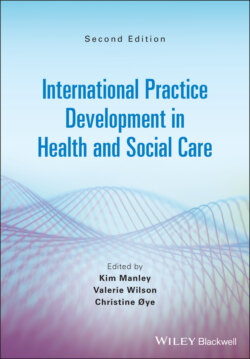Читать книгу International Practice Development in Health and Social Care - Группа авторов - Страница 40
Engagement
ОглавлениеA facilitator of PD can benefit from having many tools available to support the process. One of these tools, the SCARF© model (Rock 2009), describes how the activation of a person’s approach (reward) response can increase engagement, collaboration, cooperation and productivity in a change process. The neuroscience behind this model is not as new as the acronym. SCARF© provides a language to explain and describe the neuroscience of the physical responses to actual or potential barriers to change. The social domains to be considered are status, certainty, autonomy, relatedness and fairness (Rock 2009). By isolating the social domain that is being, or could be, threatened can facilitate the development of strategies by the facilitator to reduce stress responses and create conditions conducive to greater collaboration, cooperation and productivity.
Recognising the social domains assists in understanding that a change process is likely to threaten these domains. Therefore, it is important to increase opportunities to maximise reward responses in the easiest manner possible. For example, a PD project that encouraged a degree of autonomy in design, with a team who developed shared goals to increase relatedness and fairness, would be more likely to engage the team and decrease threat responses.
Strategies that maximise the opportunity for the social domains of participants to be orientated to an approach (reward) response rather than an avoid (threat) response can lead to a culture that embraces change. Investment in the development of facilitators skilled in techniques to predict and recognise potential and actual threats to social domains, and the ability to regulate reactive behaviour, will be crucial. Using social cognitive neuroscience to influence change has not been a conventional methodology in health services, but this may provide an opportunity for organisational shift from system inertia.
